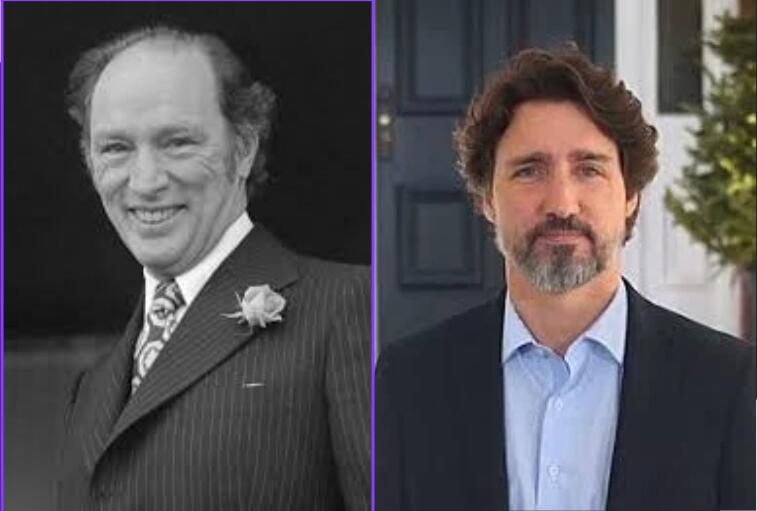Justin Trudeau for his vested political interests has harmed the Indo-Canadian relations like never before. Trudeau has been placing his short-term political gains over the well-being of Canada’s long-term international relations.
The India- Canada relations hit the rock on the 14th of October when India had to expel six Canadian diplomats and withdrew its envoy in response to Canada’s decision to label the Indian ambassador and several other diplomats as “persons of interest” in their ongoing investigation into the killing of Khalistani terrorist Hardeep Singh Nijjar.
In a reciprocal tit-for-tat response, Canada too has ordered six Indian diplomats to leave, stating that their police have uncovered what they claim to be growing evidence of an intensified campaign against Canadian citizens.
Justin Trudeau has carried forward his family’s legacy of placing personal political interests over the well-being of the country, Canada. Justin Trudeau’s father, Pierre Elliott Trudeau, who served as Canada’s fifteenth Prime Minister too traversed along the same path as his son.
The Trudeau Effect: A Generational Strain on Indo- Canada Relations
Pierre Elliott Trudeau Effect- The major diplomatic strain between India and Canada relations came during the time of Pierre Elliott Trudeau after India conducted its first nuclear tests in 1974. In 1974, India’s nuclear tests angered Canada, who suspected India used the CIRUS reactor, a project collaboratively designed and constructed by Canada and India, for nuclear development.
Canada, assuming India shared its anti-nuclear stance, felt betrayed and it marked the beginning of strained Indo-Canadian relations. Prime Minister Pierre Elliott Trudeau had a positive approach towards China and previously warned Indian Prime Minister Indira Gandhi about the repercussions of developing nuclear capabilities.
India’s 1998 nuclear tests in Pokhran further strained the relationship between the two countries. After the 1998 tests, Canada imposed sanctions on India which was lifted in 2001.
Pierre Trudeau’s support for Khalistani extremists dealt a severe blow to Indo-Canadian relations. During the 1980s, Punjab-based terrorists, including Babbar Khalsa leader Talwinder Singh Parmar—responsible for killing two Indian police officers—found refuge in Canada.
Despite India’s repeated extradition requests and intelligence warnings, Trudeau’s government refused to act. Parmar, free to operate, promoted violence against Indian diplomatic missions and ultimately orchestrated the 1985 Air India Flight 182 bombing, which killed all 329 passengers, mainly Canadians.
Though briefly detained, Parmar was released. Canada’s weak response angered Indian leaders, including the then Prime Minister of India, Indira Gandhi. Trudeau gave a helping hand and allowed the Khalistani Terrorists to flourish inside Canada.
Pierre Trudeau created a lasting fracture in Indo-Canadian ties whose baton has been passed to his son Justin Trudeau.
Justin Trudeau effect- A close examination of Indo-Canadian relations reveals that Canadian Prime Minister Justin Trudeau is intentionally working to undermine ties with India for his own political advantage. In December, 2020 while Addressing the Indian community in Canada during an online event tried to intrude into India’s internal matters and expressed concerns over the then-ongoing farmer’s protest against the three farm laws in India. He remarked that his country, Canada will always be there to defend the right of peaceful protest.
The tensions between India and Canada escalated significantly in 2023, particularly following the assassination of Khalistani extremist Hardeep Singh Nijjar, whom India had designated as a terrorist in 2020. On June 18, 2023, Nijjar was shot dead by masked gunmen outside a Sikh temple in British Columbia, triggering a wave of allegations from Canada regarding India’s involvement in his killing.
On September 1, 2023, a Canadian trade official announced that Canada had paused negotiations on a proposed trade treaty with India, a surprising decision that came just three months after both nations had expressed plans to finalize an initial agreement. Shortly thereafter, on September 10, Canadian Prime Minister Justin Trudeau attended the G20 Summit in New Delhi, where Indian Prime Minister Narendra Modi raised significant concerns about the growing Sikh separatist protests occurring in Canada.
The situation took a sharp turn on September 18, when Canada publicly accused India of supporting violent criminal activities on its soil, particularly in relation to Nijjar’s murder. This led to a diplomatic standoff, with Canada claiming Indian diplomats, including High Commissioner Sanjay Verma, were “persons of interest” in the investigation. India rejected these claims as fabricated and politically motivated.
In response to the accusations, India summoned Canada’s Charge d’Affaires, Stewart Wheeler, and decided to withdraw its diplomats from Canada. Subsequently, Canada expelled six Indian diplomats, citing their involvement in a campaign of violence. India retaliated by expelling an equal number of Canadian officials. India accused the Justin Trudeau government of trying to strain the relation between the two countries for his own political advantage and to cater his vote bank.
The Trudeau family has undeniably emerged as a significant thorn in the relationship between India and Canada. From Pierre Elliott Trudeau, who served as Canada’s fifteenth Prime Minister, to his son, current Prime Minister Justin Trudeau, the family’s political actions and decisions have often prioritized personal interests over diplomatic integrity and national well-being, leading to considerable strains in Indo-Canadian relations.
